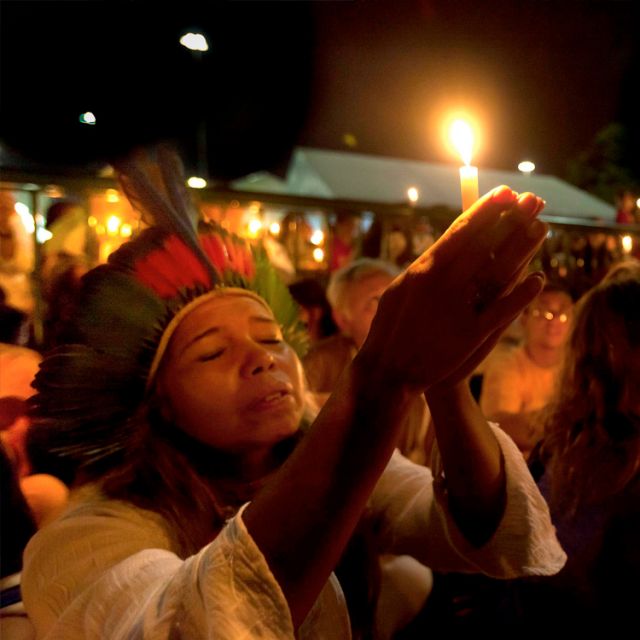In L’Osservatore Romano, the Vatican daily, the Holy See called for the international community to come up with new ways of measuring progress and wealth — “new and innovative financial instruments which would put human dignity, the common good and the protection of creation at the centre of economic life.”
At the same time the Vatican expressed doubts about glib talk of a green economy that rests its hope in new technology or new global accounting conventions.
“Care must also be taken lest the green economy give rise to new ways of conditioning commerce and international aid, and thus become a latent form of green protectionism,” said the Vatican statement.
The Canadian Catholic Organization for Development and Peace is among about 200 civil society organizations that took part in a People’s Summit that ran parallel to the official UN conference, while the Holy See was part of the official conference.
From the point of view of Catholic agencies that work with the poor in underdeveloped countries, some green version of the economics which gave us a vast chasm between average Canadians and Third World poor can’t be the goal for Rio+20, D&P executive director Michael Casey told The Catholic Register.
“Giving our economy a green touch is simply not enough,” Casey wrote in an e-mail. “The green economy fails to address the root causes of unsustainability and inequality.”
The Vatican has urged that Rio+20 find ways of putting human realities at the centre of talk about how to reorganize global economics.
“Love and solidarity for all” is the basis for a Catholic approach to both economics and the environment, Archbishop Francis Chullikatt, the Holy See’s apostolic nuncio and permanent observer to the United Nations, told a June 17 press conference in Rio.
“A truly human-centred approach must first and foremost uphold and respect the right to life.”
Some of what the Vatican fears is found in UN agency documents that assume population growth is a problem to be solved. The United Nations Environment Program and the United Nations University is using Rio+20 to launch an alternative to Gross Domestic Product it calls the Inclusive Wealth Index. The new index creates a balance sheet for nations which subtracts depleted natural resources from wealth added by selling those resources. Wealth per capita is reduced, according to the IWI, by population growth.
“This negative trend is likely to continue for countries that currently show high population growth, like India, Nigeria and Saudia Arabia, if no measures are taken to increase the capital base or slow down population growth,” said UNU-UNEP.
The Catholics at Rio+20 object to the idea that people are a liability on anybody’s books.
“We are acutely aware of the challenges that the poorest and most vulnerable communities are facing,” said Casey. “Many of these challenges regard our unsustainable economic model, which fuels economic, environmental and social inequalities.”
Rather than putting poor people on the loss side of the ledger, D&P wants “fundamental changes to our economic model,” particularly when it comes to resource extraction.
“Exploitation of natural resources which leaves the people of some of the world’s most resource-rich countries dirt poor” is a major problem, Casey said.
Developed countries have had a free ride over the last two-and-a-half centuries, exploiting natural resources and pumping carbon dioxide into the atmosphere and poor countries are paying the price, said Casey. Any agreement out of Rio+20 has to concentrate on “making sure that the strongest shoulders bear the heaviest burden,” he said.
(With CNS files.)
Humans must be at centre of Rio+20 solution
By Michael Swan, The Catholic RegisterThe Catholics in Rio de Janeiro for the Rio+20 Earth Summit aren’t quite sold on classic capitalism, nor are they buying a new green version of the markets-solve-everything ideology.
“We have allowed the rules of the marketplace to get out of control and to distort our desires and imaginations,” said a statement from the coalition of the developed world’s Catholic aid organizations, CIDSE, just before the United Nations-sponsored event, which took place June 20-22.
Please support The Catholic Register
Unlike many media companies, The Catholic Register has never charged readers for access to the news and information on our website. We want to keep our award-winning journalism as widely available as possible. But we need your help.
For more than 125 years, The Register has been a trusted source of faith-based journalism. By making even a small donation you help ensure our future as an important voice in the Catholic Church. If you support the mission of Catholic journalism, please donate today. Thank you.
DONATE
